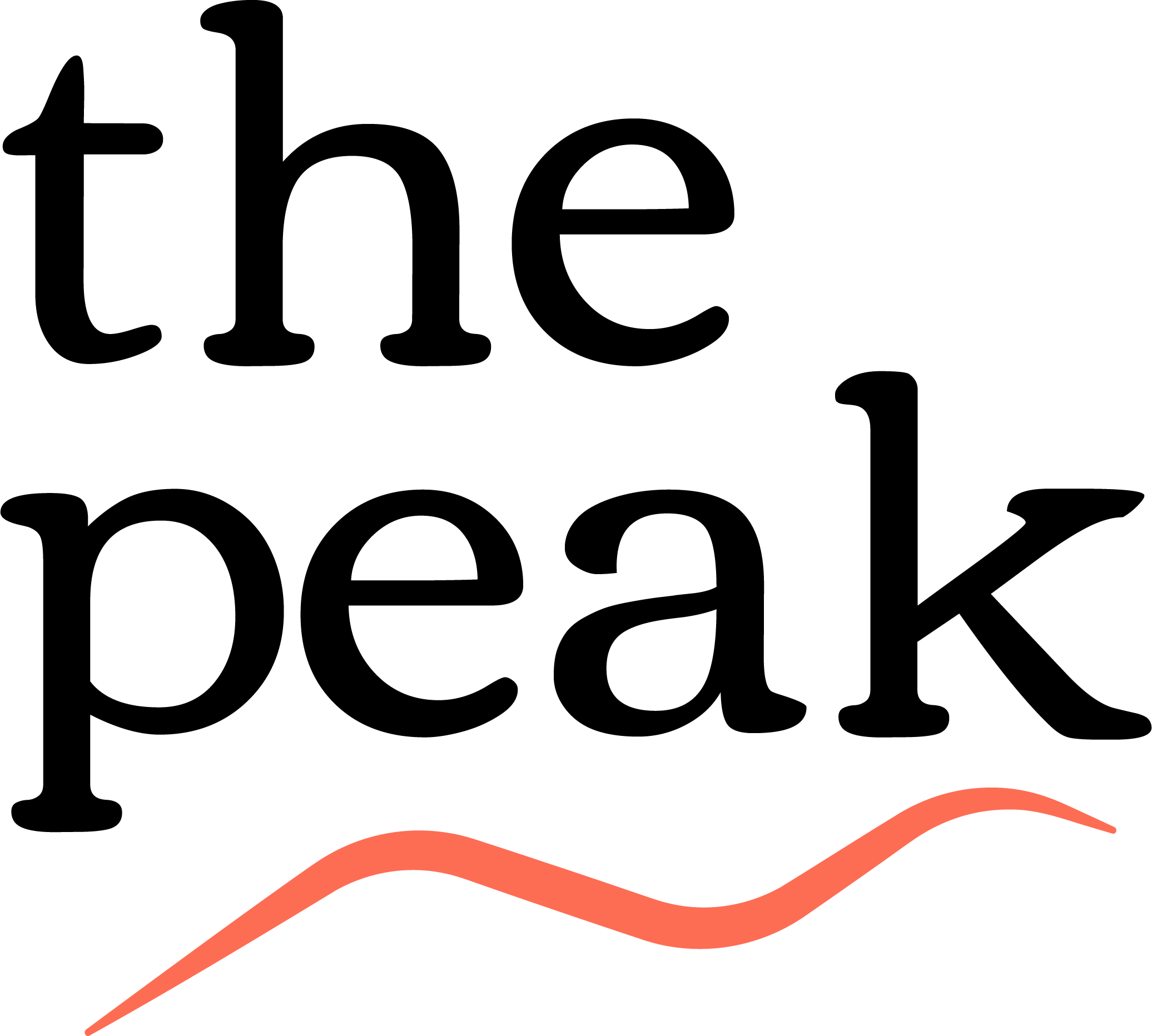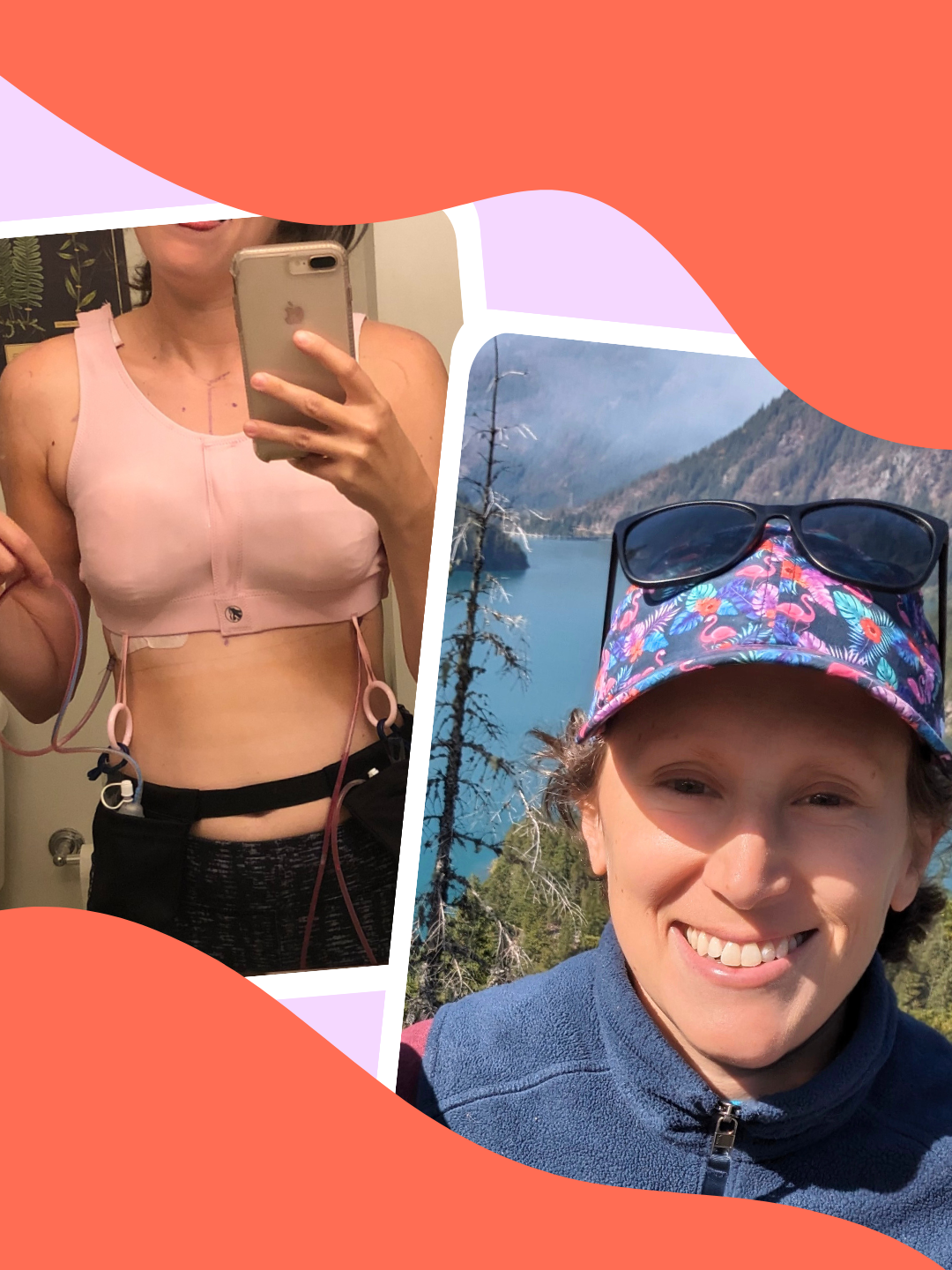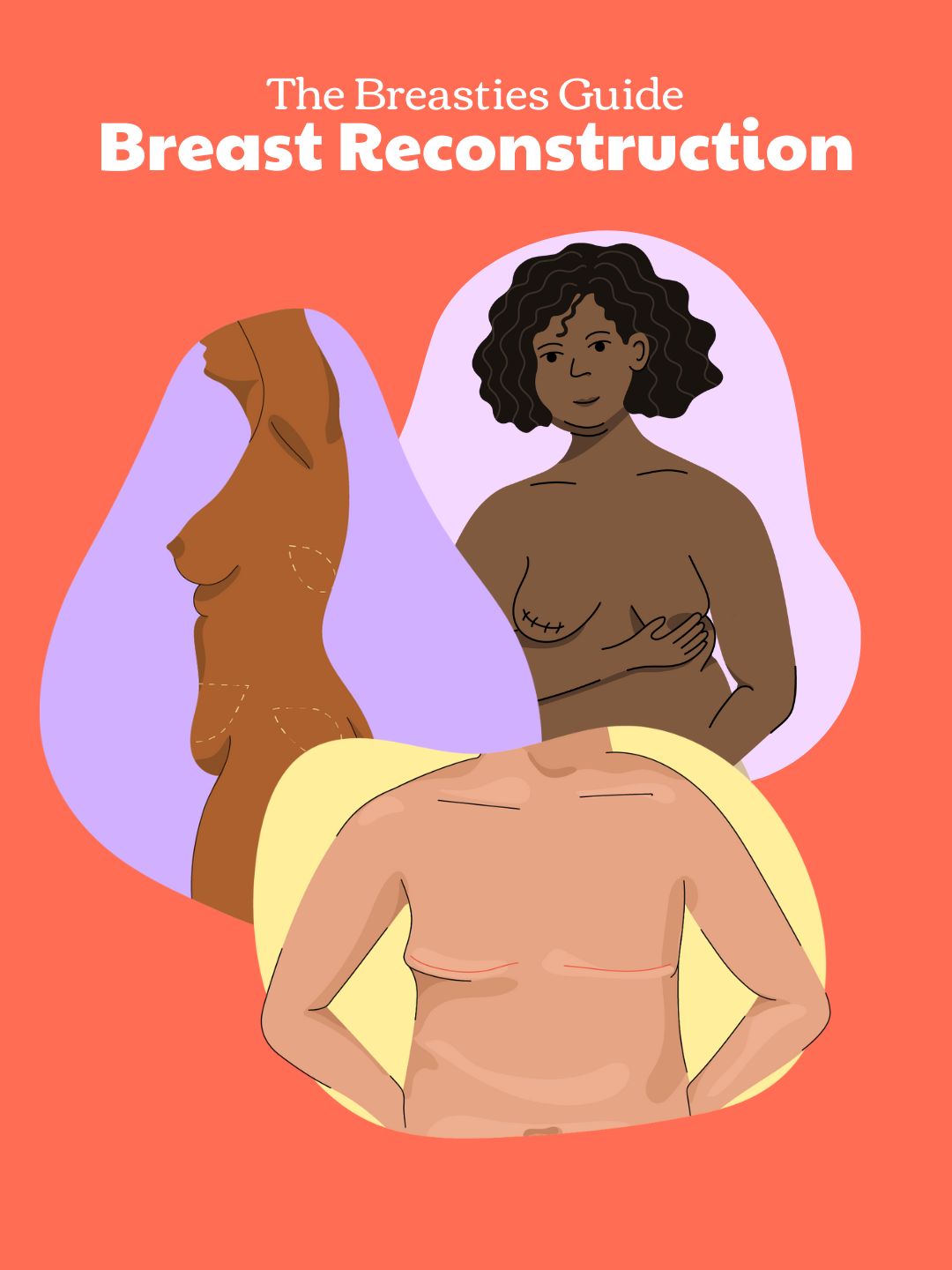Four months ago, I walked myself into the operating room to have a preventative mastectomy to reduce my risk of breast cancer. No, it was not because of the BRCA gene or clear genetic risk – but rather a strong family history that made me decide it was in my best interest to be proactive.
As someone pretty immersed in the breast cancer community, I felt prepared for what to expect but there was still a lot about surgery and recovery that caught me by surprise.
Whether you’re curious about the right questions to ask your doctor or what the emotional rollercoaster during recovery might look like, here are a few tips that I learned along the way.
Disclaimer: Everyone’s experiences, surgeries, and recoveries are different. Everything shared below is from my personal experience. My hope in sharing this is that some piece of it will resonate and hopefully help you feel less alone when you find yourself preparing for a mastectomy and recovery.
1. You Can Ask What The Day of Surgery Will Be Like (And You Should!)
As someone who never had major surgery before, I was surprised to learn that you might have to walk yourself into the operating room. This was the case for me and can be pretty nerve-wracking to learn the day of. I also learned that I’d be given a nerve block to assist with pain and that I’d get to pick a song to play in the OR.
If you’re the nervous type (like me), not experienced with having surgery (also, me), or get nervous about selecting a song (yes, me too!) – I’d highly recommend asking your medical team to talk you through what to expect on the day of surgery. Being able to mentally and visually prepare yourself before the actual procedure can help you feel some sense of control.
Tip: If you do have to walk yourself into the operating room, it can feel intimidating to see your surgical team covered from head to toe in personal protective equipment and to see surgical tools all laid out. As I walked in, I reminded myself not to look at anything other than the squinting eyes of my surgeon who I knew was smiling beneath her mask.
RELATED: How Speaking Up About My Cancer Risk Led Me to Bring a Photo of My Mom into the OR
2. The Drains (And Drain Removal) Will Not Be as Bad as You Think
Something you hear a lot about when preparing for a mastectomy are the dreaded drains. Following a mastectomy, in which all breast tissue is removed, anywhere from two to four to even eight drains can be placed in at the surgical site to help drain blood and fluid.
As someone who can get pretty squeamish around blood, I was terrified of having drains, having to regularly strip them, and of having them removed.
I can confidently say that from my individual experience, the drains were not nearly as bad as I thought they would be. The idea of them is weird to say the least but I was surprised by how quickly my mind and body adapted to them. And the drain removal? I chose to look away and truly did not feel a thing.
3. Scars Can Be in Different Places – Ask Your Surgeon!
From what I saw online, I thought scars could go either horizontally underneath the breast or horizontally across. During my pre-op appointment my surgeon recommended incisions down vertically from my nipple based on my body and natural chest size. I deferred to whatever she thought was best but also learned after the fact, that incisions can also go around the nipple, amongst other places.
Tip: Ask about incisions and scars prior to surgery so you feel prepared and can learn more about your medical team’s reasoning for doing so. Also, remember that it’s perfectly okay to seek second and third opinions to understand all options.
4. You Will Not Sleep Comfortably for Awhile
For anyone who’s done some research, you’ll know that comfortable pillows; ranging from wedges, back pillows, underarm pillows, and even pregnancy pillows are hot ticket items for recovery.
I was well-aware of this and, like many, spent too much time (and money) looking up top-mastectomy pillows. Personally, I found that having an underarm pillow (that could also double as a seat belt cushion in the car and to support my chest when I walked), travel neck pillow (for immediately after surgery) and just a good stack of regular bed pillows was all I needed. Despite knowing all of this, I was surprised and I’m still surprised several months out, how uncomfortable sleeping can be.
Tip: You will have to readjust to a completely new way of sleeping and get clever with pillow placements. If you experience back pain, try placing a pillow under your legs to help alleviate some of the pressure off of your back.
5. People Will Ask Uncomfortable Questions
Due to my work with the Breasties, my family and friends were very familiar with my surgery and reason for doing it.
Given that, I was very surprised to learn following surgery, how many questions people had, and what a mental strain it was to explain or answer questions while in the midst of recovery. Something I wish I had known, is that it’s okay to set boundaries for yourself and clearly say what you’re comfortable talking about or not talking about. I realized early on that I was tired of people asking about my physical appearance or what my chest looked like, so I kindly told people that those topics were overwhelming to talk about at this time.
Tip: Set boundaries for coworkers, friends, and family or have someone you trust be a source of communication for you.
6. You Will Have to Remind Yourself to Not Overdo It, Often
Recovering physically from a mastectomy and reconstruction is a true test of listening to your body. After several days of being bed and couch ridden, I was enthusiastic to go out on walks and move at least the lower portion of my body. I was almost instantly taken aback to learn how painful small activities (that didn’t even involve my chest or arms!) became.
This will look different at every part of recovery and of course depends on individual factors like the type of surgery you have. The first week, just a short car ride to the pharmacy would knock me out for the day. Two weeks out, a short walk would do it and now four months out, a light workout can still cause fatigue.
Tip: Whatever you think you can do in the first few days and weeks – cut it in half and be gentle with yourself. Remember your body is already working overtime to heal!
RELATED: Dr. Simran’s Do’s and Dont’s for Navigating Mastectomy Pain
7. Taking a Shower and Looking at Yourself Can Be Triggering
The day my drains and bandages were removed the physician’s assistant kindly warned me that it could be an emotional day. For the first time since surgery, the bandages were removed and I was able to look at myself. But upon hearing that it could be emotionally heavy, I decided I wasn’t ready. I actually made it a point for over a month, to not look at myself because I knew it would be an overwhelming experience for me.
Showering for the first few weeks after surgery became my regularly scheduled cry time. Something about being in the shower made me feel like I had no choice but to confront everything happening to my body.
Tip: Have a close family member, friend, or partner help you shower for at least the first week, especially if you’re unable to raise your arms. And let yourself feel how you feel!
8. Night Sweats Can Be a Side Effect of Surgery … Amongst Other Things
Before surgery I thought that all of the talk about anesthesia’s effects on the body had no standing. Turns out, they’re very real, especially the nausea and constipation.
Following surgery, I also experienced intense night sweats – which were completely new to me. After talking to several members of the community, it seems like others have also experienced this symptom after having a mastectomy. There’s currently no medical explanation for this but I found various theories from the community, such as; it’s the body’s response to healing, removing breast tissue takes away a central temperature regulator of your body and long lasting effects of anesthesia and pain medication. Thankfully, they went away around the two month mark.
9. If You Have Implant Reconstruction, Your Chest Will Feel Heavier
I was fortunate to be able to have direct-to-implant reconstruction which meant that my mastectomy and reconstruction were done during one procedure. I opted for implants that were comparable to my natural breast size and assumed that it would all feel and look the same.
I’ve since learned that my implants do in fact feel heavier (which was quite painful during the initial healing when walking around) and it’s been an adjustment to get used to. In addition to the extreme chest tightness in the initial weeks, the feeling of implants are firmer than natural breast tissue. I’ve been told that this gets better over time!
10. Your Body and Mind Won’t Feel Like Yours for Awhile
Not feeling comfortable in your body following a major surgery seems like something to be expected. I thought I was ready or could imagine what this would feel like but the truth is I didn’t realize this was how I was feeling until I was struggling.
From the full body fatigue to the pain from a small movement – I was constantly reminding myself (and still am) that this is where I’m at for now and that I won’t feel like myself for some time.
Tip: Reach out to someone and tell them how you’re feeling. I often feel alone until I urge myself to send a DM, a text, or a call. Even if it feels like it, you are not alone and you can always reach out to me or a fellow Breastie.







